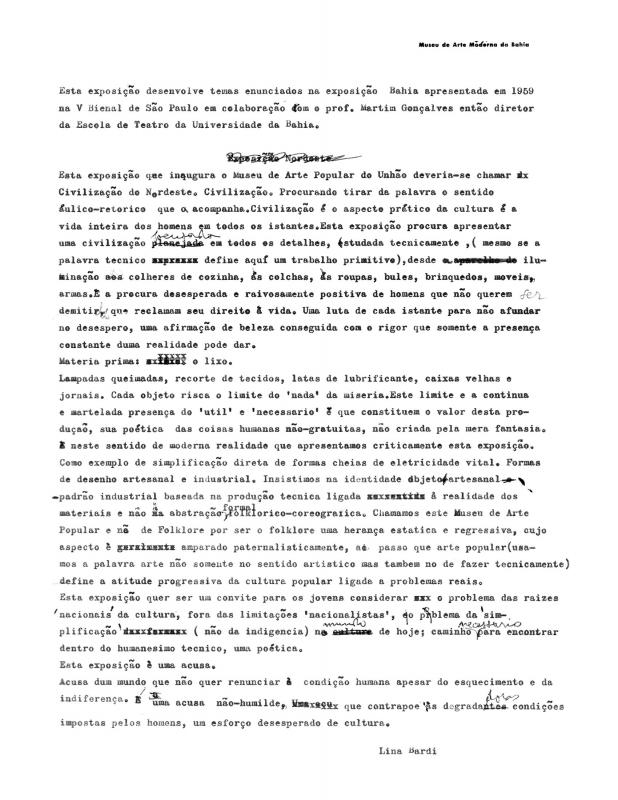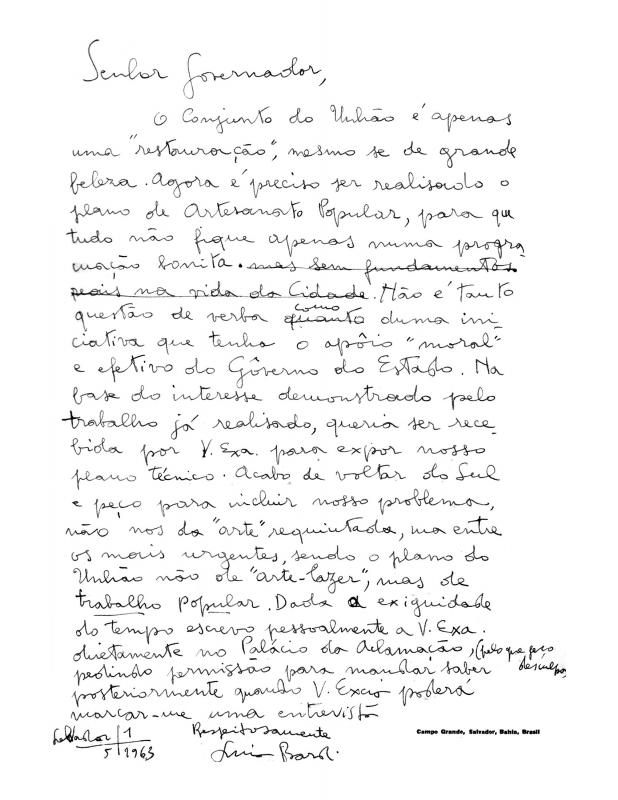The sculptor Abelardo da Hora (1924–2014) was Secretary of Education in the municipality of the city of Recife during the progressive, labor-oriented government of Miguel Arraes. In 1961, along with other Recife intellectuals of the time, da Hora founded the Popular Culture Movement (MCP). The MCP’s educational mission was to develop a culture influenced by the general public and oriented to the interests of the people of Brazil’s northeastern region. The sculptor also worked with the arts manager Lina Bo Bardi (1914?92) to organize the exhibition Civilização do Nordeste, which marked the opening of the Museu de Arte Popular in Solar do Unhão in 1963 [see doc. no. 1111193].
The Museu de Arte Popular (MAP) was an institution designed to preserve the material culture of Brazil’s Northeast Region. The museum resulted from Lina Bo Bardi’s interest in Brazilian popular culture, a parameter that was a touchstone in her earlier time as director of the Museu de Arte Moderna da Bahia (also in Solar do Unhão). This interest also influenced her work for the exhibition Bahia at the 5th São Paulo Biennial (1959), done in close collaboration with Martins Gonçalves, director of the Universidade Federal da Bahia’s Escola de Teatro at the time.
Other texts of interest related to the cultural task assumed by the architect Bo Bardi in northern Brazil allow a broader reading of her undertaking, such as the one that expresses the themes implicit in the MAP’s inaugural exhibition [doc. no. 1110868], in addition to the “Letter to Lomanto Júnior” [doc. no. 1110865].



